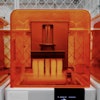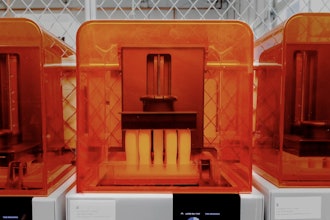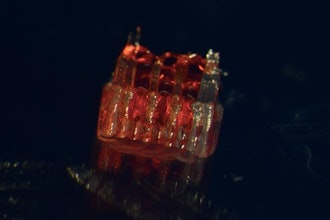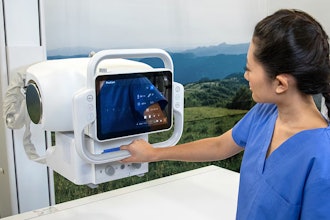Researchers from South Korea have created a new graphene-based biosensor that sucks to your skin; it was inspired by the suckers on an octopus.
The researchers designed a cheap, scalable production process for graphene-coated fabric sensors that stick to your skin. The fabric is a yarn-like substrate that is coated with graphene oxide and then soaked in L-ascorbic acid to help with conductivity as well as flexibility and strength. The sensor is then coated with a film to form a conductive path from the fabric to the skin. In the final step, the researchers etch tiny, octopus-like patterns on the film.
The material is not only flexible, but durable: capable of standing up to bends, folds, twists and stretches.
In initial tests, the sensor was able to collect data in both wet and dry situations. For example, it was able to sense when a wrist was bending and also picked up electrocardiography measurements in wet and dry environments.
It can also read speech vibrations. One test subject placed the sensor on his neck, and it could identify when he said particular words or phrases, such as “hello,” and the sentence, “I am a good man.”
The report was recently published in ACS Applied Materials & Interfaces.
The technology could be big news for the wearable, pharmaceutical, drug-delivery, medical device and diagnostics industries, among others, because for wearable sensors to provide accurate information, they need to stay on your skin — no matter how wet, dry or hairy.






















